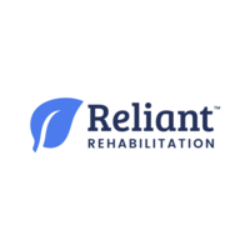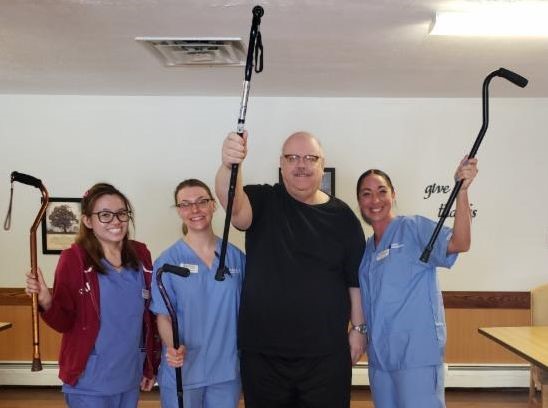Earlier this month, Reliant hosted regional directors for its annual leadership conference in Plano, Tx. The first day, attendees were inspired by Roy Tuscany of the High Fives Foundation. He offered a patient’s perspective for clinicians and presented a call to shift from the “standard protocol” to the “patient protocol.”
Through his personal story and rehabilitation journey he detailed the importance of cultivating hope in our patients and a killer high five. He emphasized it’s not just the control, attitude, and effort of the patient that effects outcomes and recovery, but the clinician’s control, attitude, and effort that ignites success.
Day two opened with keynote Heath Slawner. Heath passionately detailed the importance of claiming and living out purpose. He led the audience through an exercise to evaluate personal reasoning for our daily choices, during which he stated “start with why.” What is your why? Recognizing and embracing the reason we set out to become a clinician, administrator, or other healthcare professional provides perspective. Knowing your company’s why allows for a common culture and approach to executing product delivery.
These speakers offered the perfect complement to the remainder of the conference which focused greatly on planning and preparing for PDPM. This is the sixth installment of the Reliant Reveal PDPM series. Previous articles have focused on the structural frame work of the model, details surrounding function score calculation, strategies for training, and coding success. Within each article, and the education we have created to date, a complementary theme is emerging: the importance of collaboration and communication.
Success under PDPM may be related to contract considerations, amassed resources, and field education; however, longitudinal success- the success that produces outcomes, will be directly impacted by each care professional’s ability to effectively collaborate and communicate for the patient’s care needs.
Facilities should begin moving from the standard protocol of care to an elevated, patient-driven protocol. This protocol will empower the evaluating therapist to collaborate with nursing to ensure comorbidities are accurately and timely identified. Therapists will bring to the table the clinical characteristics to be identified on the MDS, discharge planning notes, and knowledgeable discussions surrounding the clinical reason for admission.
The successful facility under PDPM will have a clearly defined “why” complemented by Reliant’s why: Care Matters. This is the heartbeat of our daily practice, service delivery, communication and collaborative approach to patient care.


